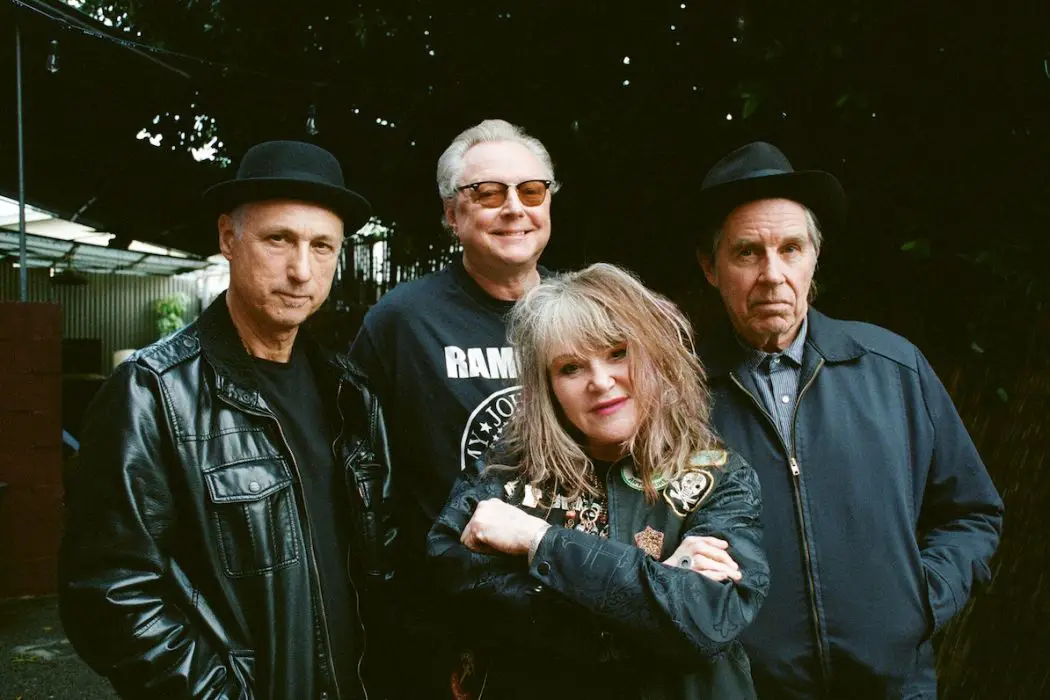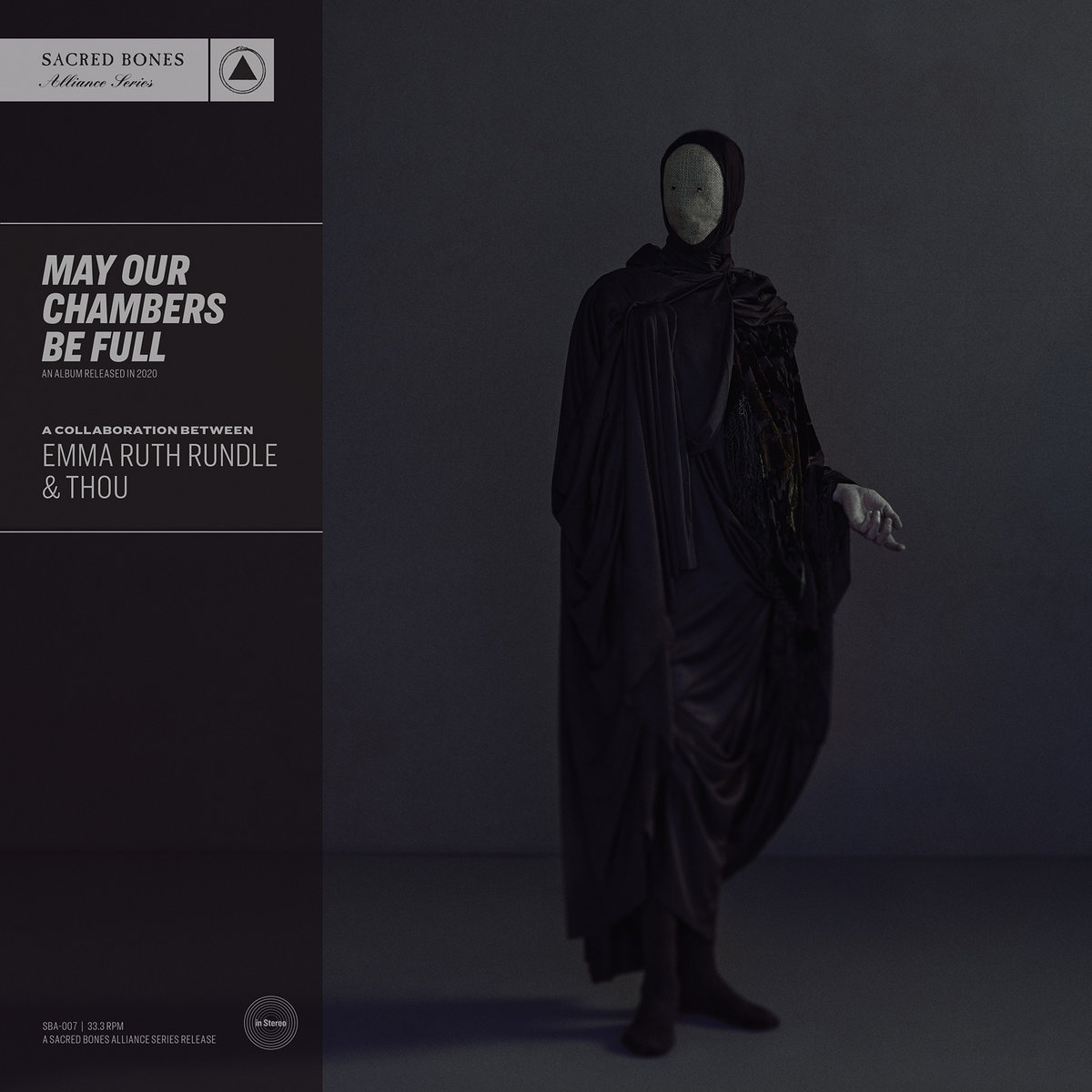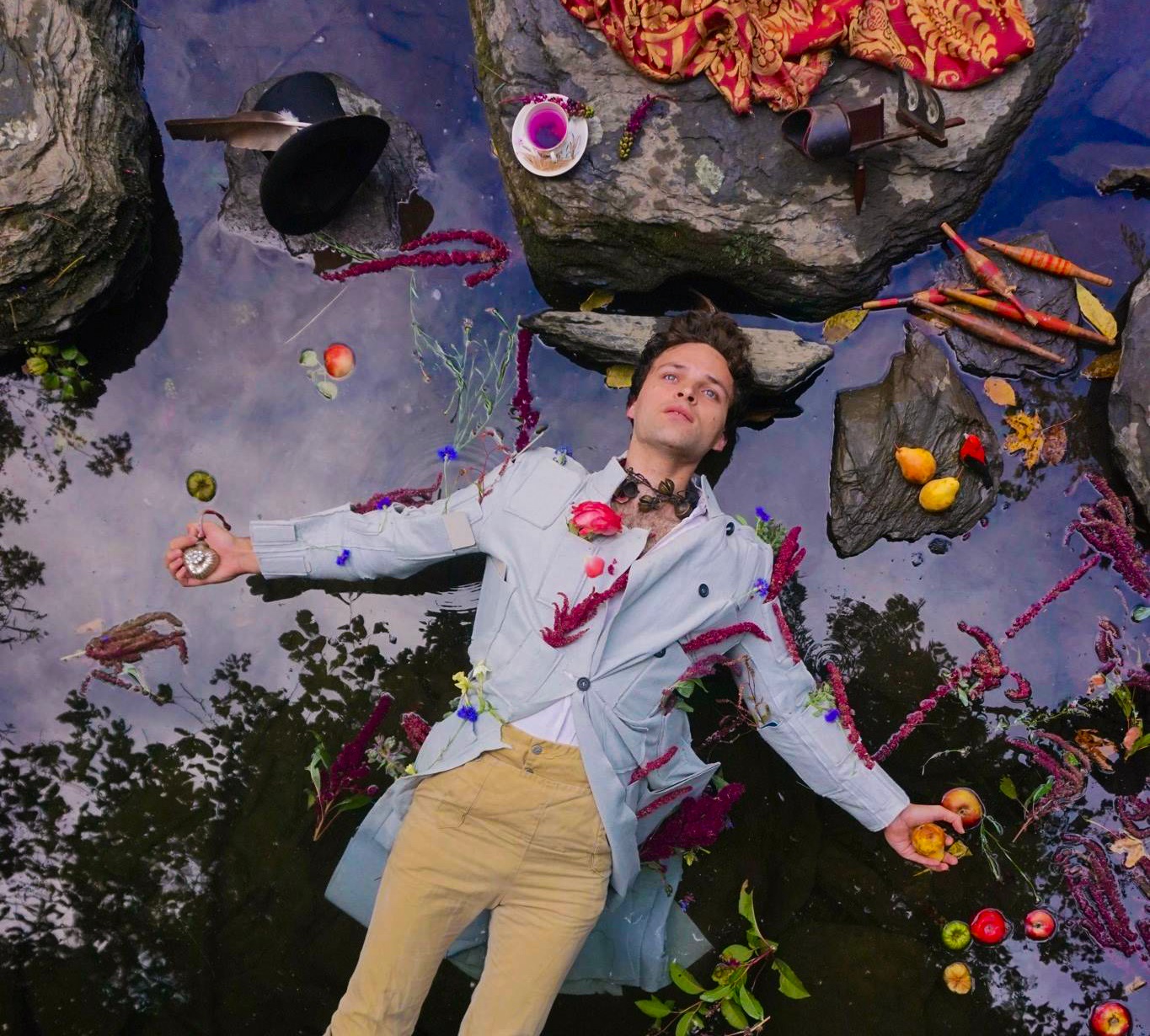Atwood Magazine speaks to X’s Exene Cervenka about new album ‘ALPHABETLAND’, the origins of LA punk, and the band’s connections to each other.
Stream: ‘ALPHABETLAND’ – X
But it was punk, you could do anything you wanted. I could’ve sung everything backwards and people would’ve said, “Cool.”
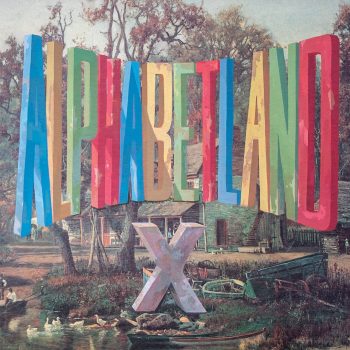
Punk, like any genre, comes with its fair share of mythic origins. The late ’70s, early ’80s West Coast punk scene is a place of legend in the minds of American punk fans, where bands like the Germs, Black Flag, Fear, and X got their start. While some bands crashed and burned, fell prey to addictions, or simply faded away, others remain as stalwart symbols of an iconic place and time. One such band is X, the foursome made up of Exene Cervenka, John Doe, Billy Zoom, and DJ Bonebrake. 40 years after their seminal debut album, aptly titled Los Angeles, the original lineup have reunited (Zoom made his departure after 1985’s Ain’t Love Grand) for an anniversary album – the first with the original lineup in 35 years.
But ALPHABETLAND, released April 22, 2020 via Fat Possum Records, is not a nostalgia project. The album, released early at the behest of the band, is one they could have made at any point in their careers. 40 years on, X still sounds as biting and driving as they did on the opening chords of “Los Angeles.” The songs are timely and smart, as the band’s writing has always been, and the band’s musicianship is stronger than ever. Though the band is currently unable to tour the album (for obvious reasons), Exene says, “If it’s the end, it’s a fitting one.” And it is – but let’s hope it’s not.
It is an incredible superpower to be in a band.
— —
:: stream/purchase ALPHABETLAND here ::

A CONVERSATION WITH X
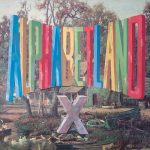
Atwood Magazine: It’s been 35 years since the original lineup put out an album. What were the conversations like that led to this decision? Was this a long time coming?
Exene Cervenka: You know, we’d go back and forth. Years ago, a friend said, “Why don’t you guys make a new record?” and I said, “I can’t, they won’t.” With the streaming of our records, we never made any money. So everybody started touring because of that. We decided to take the live South America recordings from 2011, mix those, do a Kickstarter, and do all this stuff to make it happen. It happened, we made money, and everybody loved it. And we thought, “People are so excited to hear anything different from X. These are the same songs we’ve been playing, it’s a live recording, and look at how many people wanted this and how excited they are. They want us to make a record.” And then, I think people realized in the band and in general, “Yeah, you can do this.” We got our records back from Warner Brothers because enough time had gone by that they couldn’t keep them anymore. We made a deal with Fat Possum to license those, and then, wow, you can actually make money on records. Who knew?
And so then we started talking about doing a record, and it became viable, and there was a reason to do it besides just being creative. You can make the best song in the world, but if it’s just going to be thrown out into the street, and people are just going to run it over, what’s the point? For four people like us – after our whole long lives and everything we’ve done – you need to have motivation to make a record. And the motivation was that we were still creative, we still like doing it, we love playing live. And we weren’t gonna go broke.
What made you decide to release the record early?
Cervenka: Well, I really pushed hard for that, because they wanted to put it up next year. Because we’re not gonna have any concerts this year, so they said, “Well, we’ve got to wait to put it out.” We waited 35 years to make this record, this record’s coming out now. There isn’t gonna be a next year as far as we know. And so, you kind of go from, “If we don’t put it out now, no one’s ever going to hear it. And we’ll never know if people heard it or liked it because we’ll be dead.” You go from that extreme to, “Hey, you know what, let’s put it out. Now. Let’s let’s have X fans have a good day, let’s make sure that the world gets to hear a new record. Isn’t that a nice thing to do? And then we can all be happy.“
The other reason, and maybe this is the best reason: we were just really excited and really couldn’t wait for people to hear it. Because that’s how I felt about it. I like this record so much. I think the songs are great, and Rob [Schnapf], the producer, did a great job. I just wanted people to hear it and have people go, “Oh, yay, you made an X record!” That’s all we wanted, ultimately.
John said that it “blows his mind how timely these songs are.” Your music has always been pretty overtly political and socially conscious – can you talk about how you’ve wound these things into your music over the years?
Cervenka: I think the best way to be topical, political, to do social commentary is with art anyway, like “The World’s a Mess, It’s In My Kiss,” which plays on that old song, “The Shoop Shoop Song (It’s In His Kiss).” I don’t want to be harangued all the time, because everybody’s got an opinion. But some things are just so self evident that no one can dispute it. When you see Nancy Pelosi, who’s the Speaker of the House, showing off her $24,000 refrigerator and curated chocolate ice cream collection, because chocolate’s the only flavor she eats – there are people in miles long food lines, miles long in their cars at stadiums waiting for Samaritan’s Purse to give them a box of food. And she goes on fucking TV and they’re all fine with it and all the celebrities are fine with it. And you see the disconnect between truly the haves and have-nots.
You’re seeing it now, in cases like that. Even if it wasn’t a pandemic, for her to do that is insane. What kind of person does that at a time like this? And so if you comment on something like that, it’s something we can all say, “Wow, that’s really screwed up.” You could vote for her if you want, you could be a Democrat or whatever you are and support her. But that was a screwed up thing to do. And so you can say those things with humor or with art in a way you can’t just like, go around around punching people in the face, which is why “The New World” [from More Fun in the New World]…is it about Reagan? It was written during the Reagan years. Other bands were talking about Reagan and people by name, and I just used something I heard a homeless person say who didn’t even know who the president was. He called Reagan “what’s-his-name.” But it’s the same. Whether we’re really into politics and we vote and we really mobilize people or not, we’re no different than a homeless guy not knowing who’s president.
Alt-country and Americana have long been a part of all of your repertoires (The Knitters, work with Dave Alvin, solo work, Billy’s rockabilly playing). What made you decide to make this album so similar in style to your earliest work?
Cervenka: It’s an X record – it’s not a Tony Gilkyson X record, it’s not a Dave Alvin/Tony Gilkyson X record. It’s not the Knitters, it’s not John solo. It’s Billy, DJ, John, and Exene, and that’s what we sound like.
I think that what we did was perfect for where we were in the world. I’m so pleased with John’s bass playing on those songs, because it’s really rhythmic and it’s really fundamental bass playing – it’s not fancy and all over the place crazy, and it just really drives those songs really deep into your soul. That’s what I like about them, is I can really feel the songs. Even though we wrote them and play them, I can feel them like someone else listening to it would. I like that about it. Whatever the punk rock kind of world X is, I think we found the right balance of sound for this.
Whatever the punk rock kind of world X is, I think we found the right balance of sound for this.
X’s brand of punk has always walked the line between punk and something else. You have influence from The Doors, with Ray Manzarek playing on Los Angeles. What, to you, has been the driving force behind your music and how you define punk?
Cervenka: It was about being original. It was about the Big Boys sounding nothing like The Plugs sounding nothing like The Go Go’s sounding nothing like X who sounded nothing like the Germs or Blondie. I wish people could understand that when you’re not wired every second of your life to someone else’s brain, you become this creative, original person, and you come up with this thing that no one else in the world can make up. And then when you take it out into the world, everyone is delighted and amazed. Nobody wants to see the same thing over and over again. Even the way people dressed and looked, it was all just sort of hodge podge – some people were wearing fishnets, some people had the spikey thing, some people like me had the vintage 20s thing. Anything went, and it was a wild, wonderful, free time, before all this modern Big Brother stuff happened. People are inherently creative and wonderful, and there are so many great bands now and so much good music, and people are still gonna do that. And that’s what punk is. What people are still doing right now, in their houses. You’re making something that’s just you making it, and you don’t even care if anyone else is gonna hear it. So right now, it is a very punk rock time. Probably the most punk rock time since the early 80s. There are all these bands that came and went that no one’s ever heard of, and it’s like now. You can’t play a show, no one’s gonna see you. You’ve gotta do it for the love of it.
People are inherently creative and wonderful, and there are so many great bands now and so much good music, and people are still gonna do that. And that’s what punk is.
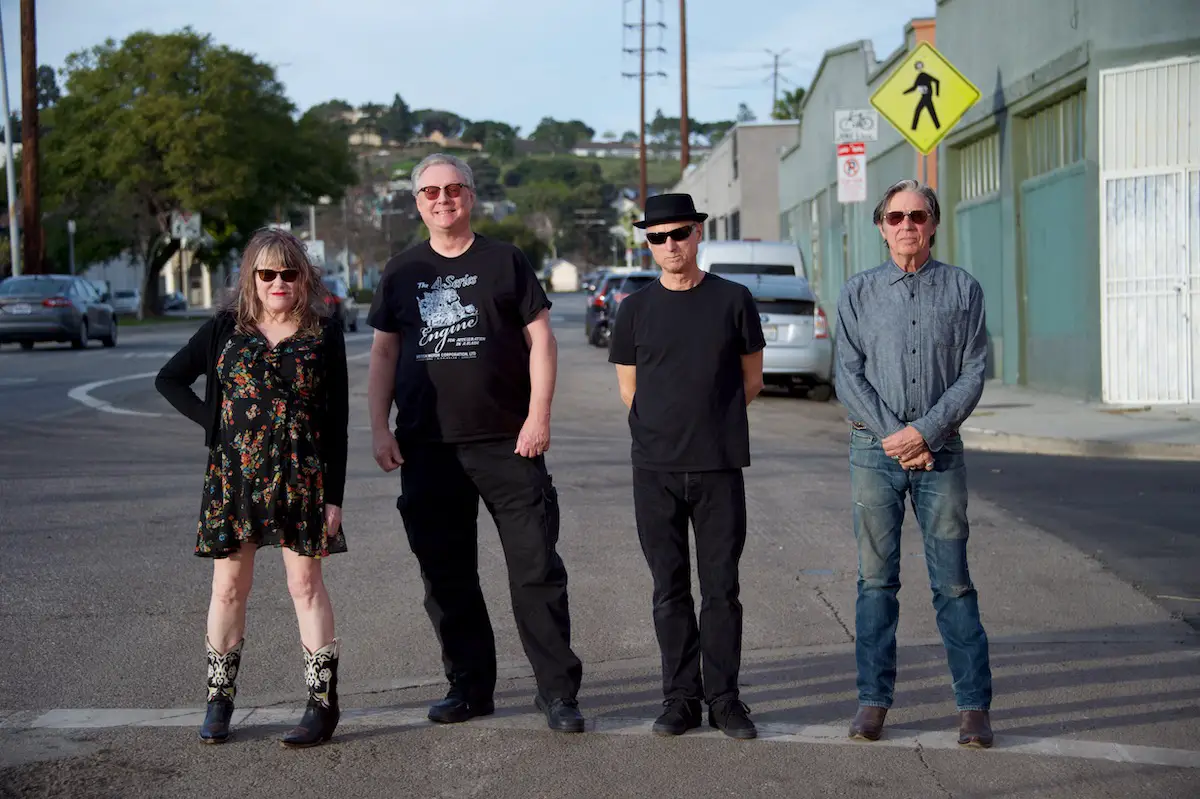
A few years ago, I saw you at City Winery in Chicago, and it was weird to sit down during your concert.
Cervenka: You know, we have two values. One is our music, our words, our presence, the certain things we can play with saxophone and vibes live now. And then the other one is the punk rock thing. As we’re older and our audience is older, we can go back and forth between those two. Sometimes, people don’t wanna stand on a cement floor for four hours. I don’t always. I’d give anything to stand on a cement floor for four hours now, of course [laughs].
You and John are both poets. I know from experience that writing songs and poems can often come from very different brainspaces. How do you separate the two, and contrary to that, how does one help the other?
Cervenka: They’re very closely related, but they are separate things. They are so close that they’re like twins. I think for me, writing is such a solitary thing, and it’s always been there for me since I was a little kid, that it’s part of me. It’s what I am. I notice that I’ve been writing in the last couple months, and my whole thing is, “Why are you writing, no one’s ever gonna read it.” And you get this thing in your head like, “Well, I guess I’m a writer.” For the first time in my life I feel like I am a writer. Because only a writer writes knowing that no one else is gonna ever see it. You’re writing because you value the ability of your mind to turn a fancy phrase and keep you amused. But you know, they [songwriting and poetry] overlap. If it wasn’t for John, I wouldn’t have written songs. He’s the one who said, “That sounds like a song, let me make that into a song,” when I was doing poetry. I didn’t ever have aspirations of doing music or being in a band. You just didn’t in the 70s. They both have value, and I’m glad I have two things I can do, because it makes life more interesting.
I’ve always been so interested in the way you and John sing together – you’re both singing lead, and whether or not it’s a harmony it sounds like the main melody.
Cervenka: There’s no consciousness involved in that. John’s a naturally gifted singer and he sang in a lot of bands. Billy and DJ also are very gifted musicians and singers. They all have very intelligently researched musical backgrounds and family members, with me being the complete and total opposite. That’s why it sounds like that. If I was just like them, we would sound like, I don’t know, The Police or something. I’m so glad those guys hung with me while I was trying to figure this shit out. That was pretty cool. But it was punk, you could do anything you wanted. I could’ve sung everything backwards and people would’ve said, “Cool.” It was a good time for “anything went,” when you were young, and you could experiment and get feedback – a lot of it negative, because that’s important too.
There’s a great rearrangement of “Cyrano De Berger’s Back” on this album. Of everything in your catalog, why pick that song to redo?
Cervenka: Because it’s a great song and we never did it, and Billy could play saxophone on it. We don’t have a lot of songs that we didn’t record. There’s only one other that we didn’t record, that was an old one. We didn’t want those songs to just die with no one ever hearing them, and not hearing them in their correct, modern, “look how good we are now” version. That’s why you do things, because you either want to make it better than the first time you did it, or you’ve never done it before.
How do you feel your attitudes have changed over the last 40 years?
Cervenka: I guess they’ve pretty much stayed the same. The reason we’re a band is still the same reason we’re a band. Why did we start a band together? I don’t know, but we’re still doing it so I guess it was the right decision. If this damn pandemic wasn’t happening, I’d be the happiest person in the world getting to go out on the road and play shows. We love it so much and were so looking forward to it. It’s nice knowing that if this is the end, it’s a fitting end. It’s a positive end. We loved making our record and we loved every show we played. That’s a lot better than saying, “My life is a living hell and I hated my band and I had to work” [laughs], because a lot of times that’s what happens. I’m very, very happy that we actually do love being in this band.
It’s like a family.
Cervenka: No, it’s like a band. It’s a dynamic of interpersonal relationships, yes. But it’s so different. You’re on stage. It’s you against the world. All four of you. That’s all you have in the world. It is an incredible superpower to be in a band.

What does ALPHABETLAND mean to you?
Cervenka: Well, I’m not sure if I know the answer to that yet, maybe time will tell. But I think overall it’s a place in my mind. It’s like a place where we’re at right now. And it’s a good place, overall. The word “alphabetland” isn’t really on the record. Billy just thought that I was saying “alphabet land” and I was saying “alphabet wrecked” and “alphabet mine.” So he kept calling the song “Alphabetland, and I was like, “What song ‘Alphabetland?’ There is no song called ‘Alphabetland,’ it’s called ‘Mercury!’” But then we decided it made sense and we just started calling it “Alphabetland,” and then it seemed like a good name for the album. I mean there’s that company, Alphabet, Inc., which, it’s kind of like we are living in the Big Brother world now. Especially as we come through this, if this pandemic does come to an end, we’re going to be tripping like crazy. I’m going to be living in a cabin or a cave in Arkansas [laughs].
It's funny, you've kind of come full circle. You've named this album after a place, whether it's fictional or not.
Cervenka: Yeah, it’s a place all right. We’re just glad that we gave some happiness and joy to people, you know, like thank goodness. Just something to hang on to for a while.
— —
:: stream/purchase ALPHABETLAND here ::
— — — —

Connect to X on
Facebook, Twitter, Instagram
Discover new music on Atwood Magazine
? © Kevin Estrada
ALPHABETLAND
an album by X

